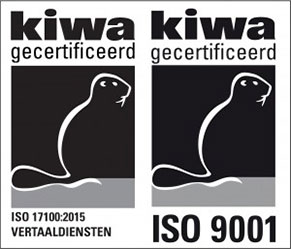Gaelic translation agency
- Only experts in the Gaelic language
- Get the best Gaelic translations….
 Gaelic translation agency
Gaelic translation agency
Gaelic, also known as Goidelic, is a subgroup of the Q-Celtic or Island-Celtic languages. The language group is subdivided into Irish-Gaelic, Scottish Gaelic, Manx-Gaelic, and Shelta. Gaelic is now protected in Ireland; it is the country’s first official language. In 2007, Gaelic was also accepted as one of the many official languages of the European Union, despite being a language that hardly has any native speakers left and is threatened with extinction. The recognition and protection came a little late and after a messy history. Still, Gaelic is back in the spotlight and the number of speakers is growing. The fact that very ancient Gaelic writings have been preserved also makes the language worth protecting.
Scottish-Gaelic (or Gàidhlig) is a Goidelic language spoken in the Scottish Highlands by the Celtic Gaels. This Gaelic does not have many native speakers left. The nice thing about Scottish Gaelic is that it does not have words for ‘yes’ and ‘no’. So how do Gaelic speakers answer a typical yes/no question? This happens as follows: if, for instance, you ask someone if they are ill, they will answer with the confirmation “I am”.
The verb ‘to have’ also does not exist in Gaelic. To circumvent this problem, people would say, for example, ‘there is food with John’ instead of ‘John has food’. The lack of the verb ‘to have’ says something about the social structure of the Celts who, for instance, only had communally managed soil. What is also special is that the language only has 17 letters and no more than 10 irregular verbs. This does not make it an easy language, though, because even though it is consistent, its orthography is very complex.
Manx-Gaelic was spoken on the Isle of Man, but with the passing of Ned Maddrell in 1974, the last native speaker, and thus the language, died. However, in recent years, interest in the language has grown and it is experiencing a revival. Many children are learning Max-Gaelic in school as a second language next to English.
Lastly, Shelta is the Gaelic of the Irish Travellers, an ethnic group with a nomadic existence. A standard orthography has never been recorded for the language; words, therefore, can be written in various ways. Roughly 10% of the words originate from the Romani, another travelling people.
Even though these languages are small, they are being revived. There is an increasing interest in Gaelic writings and there is a need for translations into Gaelic. And that is where we come in.
What is your Gaelic translation going to cost? If you request a quote using the button below, you will receive a fully customised quote within 30 minutes.
Gaelic translation assignments are not a daily affair, but that makes them all the more exciting. Small languages have a special place in our hearts and it is nice to be able to contribute to their survival. We meet the highest possible European quality standards for translation agencies: ISO 9001 and ISO 17100. These standards impose strict requirements on our business operations and the quality of the translators. This also applies to the Gaelic translators we work with. In addition, you can always count on our lowest price guarantee and our 100% satisfaction guarantee.
15.000+ clients have already placed their trust in us

Translation Agency has the highest certificates for translation agencies: ISO 9001:2015 and ISO 17100:2015. Top quality and service are always our number one priority.


Translation Agency is a member of the VViN and EUATC; Organisations of translation agencies that work together to optimise quality and service.
